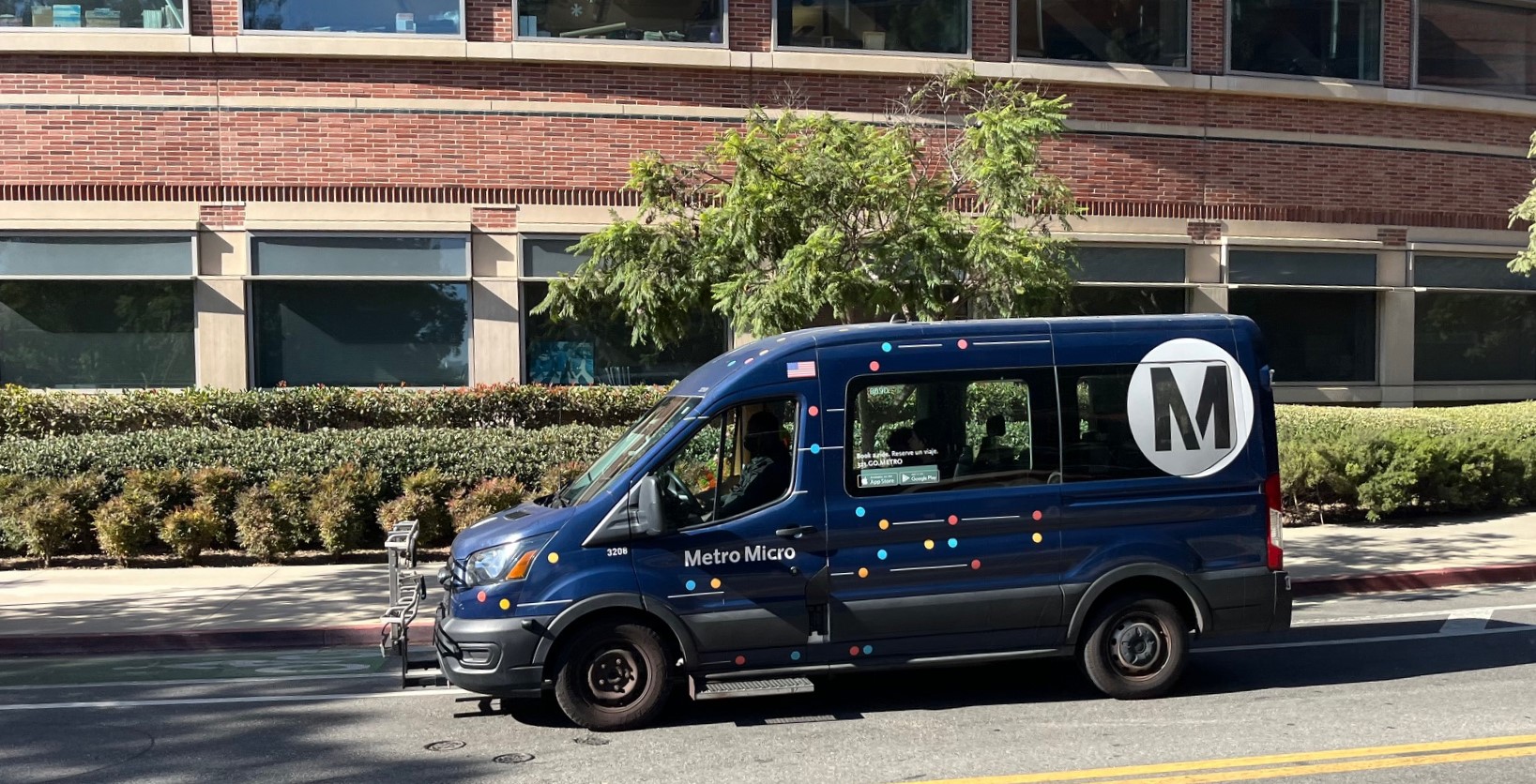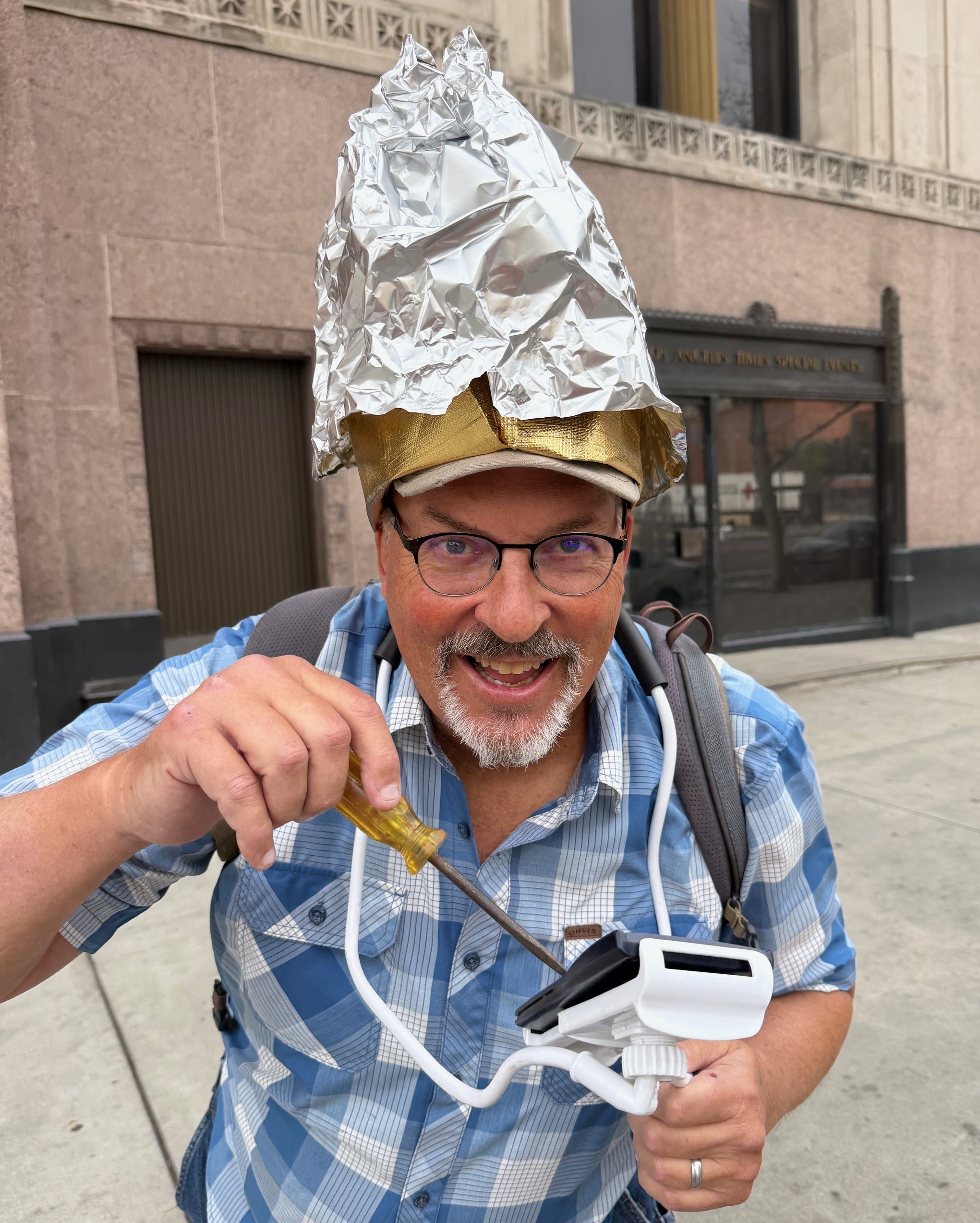Last week, Metro board committees met to discuss and decide various items. Committee approvals are preliminary, pending approval at the upcoming full Metro board meeting on December 5.
Outsourcing Metro Micro Drivers
Just when you thought Metro's inequitable inefficient low-ridership microtransit pilot couldn't get it worse, it does. The one bright spot in the dismal Metro Micro program - the way Metro sold the program as being better than those mean old labor-busting contract-hire ride-hail companies - is that Metro Micro drivers are Metro staff.
Not for much longer.
Metro figured out that it could save a few bucks by outsourcing Metro Micro drivers. That proposal [staff report] was approved last week by Metro's Operations Committee.
This month Metro is looking to lock in about $22 million/year in indefinite Metro Micro contracts. Another overarching Metro Micro operations contract expected to come for board approval in January.
It remains astonishing that Metro is looking to lock in these outrageous costs for a system that is serving 2,000-2,500 riders per day countywide. At a time when Metro trains and buses are starting to get crowded due to increased ridership, it is folly to continue to throw operations funding at a failed MicroTransit pilot.
North County Shifts Transit Funds to Highway
Metro's Planning Committee approved a North L.A. County subregion proposal [staff report] to shift transit funding to highway projects.
The action revokes $1.96 million previously allocated for transit capital [spreadsheet] for new bus service connecting to Vista Canyon Station and Valencia bus stop improvements.
The subregion proposed shifting those past transit funds, plus borrowing some future transit funds, to combine with future highway funding for a total of $17.75 million for Highway Efficiency Program [spreadsheet] projects. The funds will go to expanding interchanges on Highways 14 and 138, plus a bridge for drivers to get to Vista Canyon.
If approved by the Metro board, shifting these North County funds could set a harmful precedent.
There has some similar inter-program borrowing in the recent past (the South Bay approved the Inglewood People Mover project borrowing some non-transit funds). Many subregions would be happy to indefinitely delay all transit and active transportation funding and instead spend more and more on car capacity.
Transit Policing/Security Updates
Metro has been hosting transit policing listening sessions as it gears up its hiring process for a new in-house Chief of Police. Metro's hiring schedule anticipates a new chief to be hired in or around March 2025. That chief will oversee the creation of an expanded in-house Metro police force to replace contracted law enforcement.
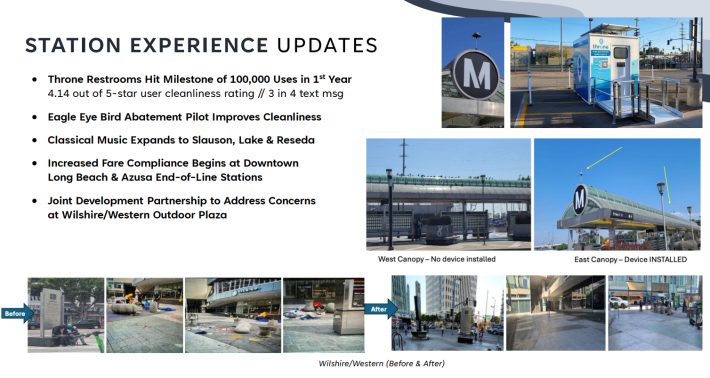
Maybe you already heard (pun intended) that Metro recently expanded its anti-unhoused loud music to additional stations: Lake, Reseda, and Slauson.
For the latest on Metro security, see this month's policing update and quarterly update on in-house policing implementation.
December Service Changes
Metro's twice yearly service changes [staff report, presentation] are coming up on Sunday, December 15. Changes include:
- Line 96 (currently serving Burbank, Glendale, Griffith Park, Silver Lake, Elysian Valley, and Chinatown) will become new Line 296. Service will end at the Lincoln/Cypress A Line station instead of in Chinatown.
- Line 260 (from Pasadena to Compton) will end at Rosa Parks Station instead of its current Artesia Station terminus. Corridor service will be split into two lines with the 260 ending at Rosa Parks and the 261 continuing to end at Artesia A Line Station.
- Lines 177 and 256 will become Pasadena Transit Lines 53 and 33.
- The G Line Bus Rapid Transit will run on Oxnard Street between Sepulveda Boulevard and Woodman Avenue, for approximately 18 months of construction of G Line upgrades. Van Nuys Boulevard bus stops will be impacted by East San Fernando Valley Rail construction.
- Several additional bus frequency changes
A report attachment outlines additional bus service routing changes planned to coincide with the opening of Metro's LAX Transit Center, anticipated in early 2025.
Bus Speed Improvements
Metro's quarterly Next Gen Bus Study update [staff report] included a brief preview of upcoming bus speed improvements.
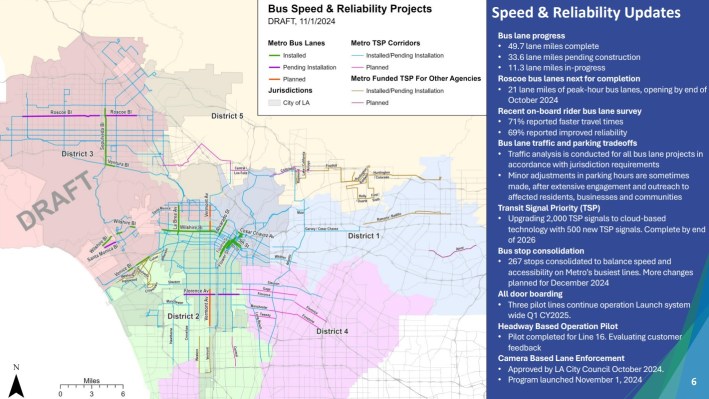
Bus riders can look forward to faster bus speeds facilitated by:
- New bus-only lanes coming soon to Florence Avenue and Santa Monica Boulevard
- All-door boarding is expected to launch system-wide in the first quarter of calendar year 2025
- On-bus camera enforcement of bus-only lanes is already in its warning period; citations will be issued beginning January 1, 2025
- Upgraded transit signal priority coming to 2,000 signals
New Electric Bus Chargers
Metro's Operations Committee approved $8 million to replace seven electric bus chargers along the G Line [staff report].
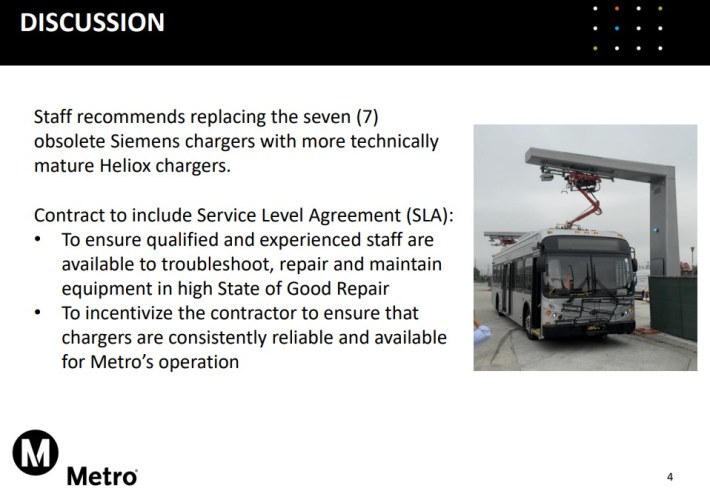
These chargers began service in 2021, as part of Metro's initial pilot electric bus service on the Valley's G Line BRT. In recent years, they had become unreliable, resulting in all-electric G Line service being replaced by natural gas buses during downtimes.
Dodgers Victory Parade Success
In addition to two years of steady everyday ridership growth, the Metro system saw a significant ridership spike on November 1, when around 80,000+ Dodgers fans took Metro to the team's victory parade.
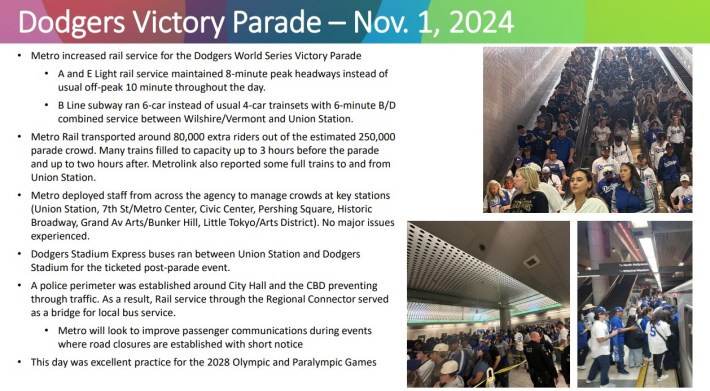
Metro increased frequency and capacity on A, E, B and D Lines. Even so, Metro reported many trains filled to capacity up to three hours before the parade and up to two hours after.
Culver City Grant Funding Revoked
Metro's Planning Committee voted to take back about a half-million dollars in grant funding previously allocated to Culver City because the city is currently removing the grant-funded first/last-mile bike lanes installed in 2021. Read more about Culver City's Metro grant de-obligation and changes in the city council there.
